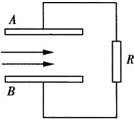问题
单项选择题
下列推理正确的是:
A.只有开启电源开关,电脑才会运行;这台电脑没运行,可见没有开启电源开关
B.翻译要学好外语,我又不当翻译,所以,我无须学好外语
C.如果公路被冰雪覆盖,汽车就不会按时回来。果然汽车没有按时回来,可见,公路被冰雪覆盖了
D.鸵鸟不会飞,鸵鸟是鸟,所以,有的鸟不会飞
答案
参考答案:D
解析: D项符合三段论,正确。B项不符合三段论推理。充分条件假言推理,比如,“如果……就”,其假言推理规则:(1)肯定前件式:有前件就有后件;(2)否定后件式:没有后件就没有前件。C项错误。必要条件假言推理,比如“只有……才”,其假言推理规则:(1)肯定后件式:有后件就有前件;(2)否定前件式:没有前件就没有后件。故A项推理错误。





